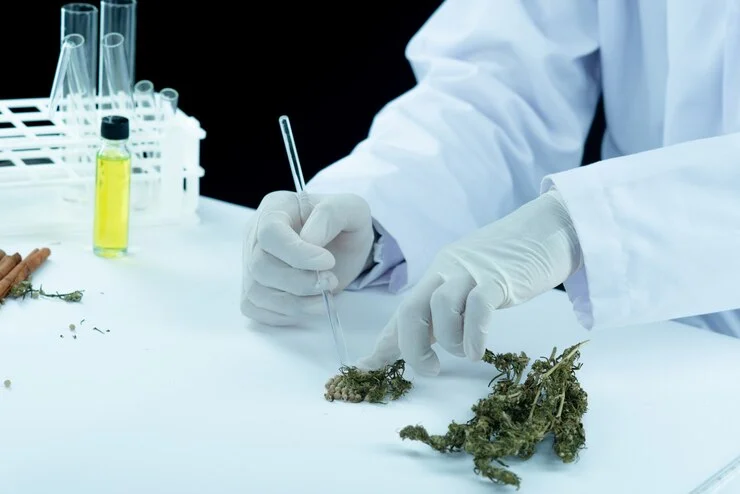Marijuana legalization presents an opportunity for significant reform within the criminal justice system. By reducing arrests for marijuana-related offenses, resources can be redirected toward addressing serious crimes and improving public safety. This shift not only alleviates the burden on law enforcement but also decreases the number of individuals facing life-altering consequences for non-violent drug use.
The impact of legalization extends beyond reduced incarceration rates. As legal frameworks evolve, there is potential for the elimination of racial disparities that currently pervade drug enforcement practices. This change can foster a more equitable system that promotes justice rather than punishes individuals for personal choices.
Furthermore, legalizing marijuana offers a chance to generate tax revenue that can be invested back into communities.
Impact on Law Enforcement Focus
Legalizing marijuana can significantly shift law enforcement priorities. By reallocating resources, police and other agencies can focus on more serious crimes. This change can enhance public safety and improve community relations.
Resource Allocation and Efficiency
Legalization allows law enforcement agencies to redirect resources previously spent on enforcing marijuana prohibition. These resources include personnel, funding, and time.
Instead of conducting arrests and managing cases related to marijuana offenses, officers can concentrate on violent crimes, drug trafficking, and property crimes.
This shift can lead to more effective policing strategies, as officers can engage in community-oriented policing and crime prevention initiatives. Efficient resource use can also bolster community trust, as residents see law enforcement addressing more pressing safety concerns.
Changes in Arrest and Incarceration Rates
As marijuana legalization progresses, arrest rates for marijuana-related offenses are expected to decline. This reduction leads to fewer individuals entering the criminal justice system unnecessarily.
Fewer arrests can alleviate overcrowded jails and reduce the burden on the court system. Resources can then be utilized to focus on rehabilitation and alternative sentencing for violent and repeat offenders.
Economic Implications
Marijuana legalization holds significant economic potential for the criminal justice system by reducing expenditures and creating new revenue streams.
Cost Savings in the Criminal Justice System
Legalizing marijuana can lead to substantial cost savings within the criminal justice system. Police resources currently allocated to enforcing marijuana laws could be redirected to more serious crimes. By legalizing cannabis, local, state, and federal budgets could decrease significantly.
Fewer arrests lead to reduced court costs for prosecution and defense, impacting budgets positively. Cases involving minor drug offenses often require significant legal resources, which could be better utilized addressing violent crime and public safety issues.
Revenue Generation from Cannabis Industry
The legalization of marijuana opens up a lucrative market, generating considerable tax revenue. States that have legalized cannabis have seen significant financial gains. For instance, Colorado reported over $1.7 billion in cannabis sales since legalization in 2014.
This revenue can be allocated to public services such as education, healthcare, and infrastructure. States can impose taxes on the sale of cannabis products, creating an ongoing income stream that benefits the community.
As the cannabis industry grows, job creation in sectors such as agriculture, retail, and distribution becomes evident. Legalizing marijuana can also provide funding for criminal defense lawyers in Providence and other cities, allowing for a strengthened legal framework surrounding cannabis-related issues.
Legal and Policy Reforms
Legalization of marijuana can lead to significant reforms in criminal justice policies that promote fairness and rehabilitation. Changes in sentencing laws and expungement processes can address past injustices associated with marijuana offenses.
Sentencing Reform and Legislation Changes
Legalization can create a foundational shift in existing sentencing laws related to marijuana. Redundant penalties can be replaced with more reasonable alternatives that focus on education rather than punishment. States can enact legislation that reduces penalties for possession and use of marijuana, aligning with current public attitudes.
Criminal defense lawyers in Providence can advocate for clients impacted by outdated laws. By implementing new sentencing guidelines, those previously convicted can see reduced charges or even dismissal of cases linked to marijuana use. Such reforms contribute to a more equitable legal system.
Expungement and Re-entry Programs
Expungement refers to the process of clearing a criminal record. Legalization provides an opportunity to streamline this process for individuals with prior marijuana convictions. Many states are exploring automatic expungement for certain offenses, allowing individuals to move forward without the burden of a criminal record.
Re-entry programs can assist individuals in reintegrating into society post-incarceration. These programs offer resources like job training and counseling, promoting successful transitions. Legal advocates play a key role in ensuring that those affected by past marijuana laws can benefit from expungement and re-entry initiatives, fostering safer communities.
Societal Benefits and Public Safety
Legalizing marijuana has the potential to enhance societal benefits and improve public safety. Key aspects include the reduction of crime related to illicit markets and better community relations with law enforcement agencies.
Reduction in Crime Associated with Illicit Markets
The legalization of marijuana can significantly reduce criminal activities linked to the illegal drug trade. By regulating the market, legal frameworks can diminish the power of drug cartels and gangs involved in the black market.
Fewer illicit transactions can lead to:
- Decreased violence: Conflicts between rival dealers often lead to violent encounters. Legal sales reduce incentives for these illegal activities.
- Lower law enforcement burden: Police resources can shift from enforcing marijuana prohibition to addressing more serious crimes.
- Tax revenue generation: Funds obtained can support public safety initiatives and rehabilitation programs, further reducing crime rates.
Improvement in Community Relations with Police
Legalization fosters improved interactions between communities and law enforcement. With a focus on legal frameworks, individuals may feel less targeted for marijuana-related offenses.
Key benefits include:
- Trust building: Reduced fear of arrest encourages open dialogue between community members and police, promoting collaboration.
- Focus on serious crimes: Police can allocate resources toward combating violence and property crimes instead of marijuana enforcement.
- Increased public safety: A trusting relationship leads to better community engagement, allowing police to gather information on more significant criminal activities.
Together, these changes contribute to a safer environment and reinforce the benefits of marijuana legalization in the criminal justice system.







